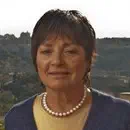
Question: What did the uneducated hassid tell the educated College Professor?
Answer: "Rent is due on the 1st."
The above joke has gone viral in the Orthodox NY community (it was sent to me by a history professor, no less!) since the New York Times article - or more accurately, hit piece - "Failing private schools flush with public money" on haredi/hassidic education was published last week. It took Times reporters two years of research and the newspaper’s willingness to spend a good deal of money to end up with a bizarre 7000 word article, replete with hackneyed antisemitic tropes (note the title and go on to read how Jews have gotten their hands on the money, both private and government sourced, how only they know how to field a powerful lobby and more) along with skewed reportage (much of it the words of a few cherry-picked unsuccessful dropouts and former teachers with an ax to grind) but grist for those unfamiliar with the sector and the “white privilege” mill.
The writers are adept at creating a desired impression by providing negative facts, such as results on standardized tests, without addressing their reliability (see addenda)* and significance, which would necessitate the correlation of those results to educational outcomes and how well they predict success, if at all. This glaring omission is in an article purporting to show that hassidic education does not prepare students for economic viability. Facts are interspersed with generalizations and innuendos about other aspects of hassidic education, such as alleged corporeal punishment, at first made to sound all-pervasive and then qualified. (One instance would be too many, but that one instance has yet to be proven).
While the article’s appearance was well timed for NYS legislative initiative aimed at controlling school curricula, it was a strange coincidence that was it was published while I was spending a pleasant week as the guest of family members who are Satmar, Bobov and Stoliner hassidim. after a three-year absence from the USA due to Covid. I know the NY hassidic community a good deal better than do the staff who wrote the NYT article and to me, they are not the depersonalized Yiddish-speaking objects of a study.
 I saw a community with a natural division between blue and white collar employment, running the gamut of the many ways to make a livelihood as a result of specific interests, ambitions, talents, and abilities.
I saw a community with a natural division between blue and white collar employment, running the gamut of the many ways to make a livelihood as a result of specific interests, ambitions, talents, and abilities. While it seems obvious that the NYT writers had a predetermined objective and also did not understand much of what they saw, I, in contrast, have no ax to grind. I have never belonged to the community, was not educated in its school system, have a summa cum laude degree in mathematics, minor in English lit., a degree from Yeshiva University’s Teachers College in Tanach. I am a Religious Zionist who believes strongly in the need for a Jewish state despite its imperfections, have a grandson serving in the IDF hesder now and others who have done the same, my immediate family ranges from Merkaz Harav Yeshiva to Shaarei Tzedek hospital staff and studies at the Weizmann Institute. Our extended family, however, is connected and caring, although some are like me, some of us continued in the path of our hassidic antecedents, some went the Litvish path and some will hopefully return to one of those choices.
While it seems obvious that the NYT writers had a predetermined objective and also did not understand much of what they saw, I, in contrast, have no ax to grind. I have never belonged to the community, was not educated in its school system, have a summa cum laude degree in mathematics, minor in English lit., a degree from Yeshiva University’s Teachers College in Tanach. I am a Religious Zionist who believes strongly in the need for a Jewish state despite its imperfections, have a grandson serving in the IDF hesder now and others who have done the same, my immediate family ranges from Merkaz Harav Yeshiva to Shaarei Tzedek hospital staff and studies at the Weizmann Institute. Our extended family, however, is connected and caring, although some are like me, some of us continued in the path of our hassidic antecedents, some went the Litvish path and some will hopefully return to one of those choices.
And I ask: How did the Times writers miss my Satmar great nephew who is an executive in a 100- worker strong successful insurance company all of whose employees are haredi, and whose firm took them all to Dubai for a bonus vacation last year? His hassid cousin has 170 workers under him at a leading appliance manufacturer. A third is in real estate, another in construction, another an accountant, one in special education, still others are rabbis or teach in yeshivas - and I can go on. They all came to see me and while I speak a good Yiddish, they must be making themselves understood in English at work and I have a strong feeling, judging by their income, that they have made up for their possible early lack of arithmetic skills.
The electricians who came to my host’s home were hassidim, as are the nearby grocers, butchers, bakers and hardware stores, private firm bus drivers and more. I saw a community with a natural division between blue and white collar employment, running the gamut of the many ways to make a livelihood as a result of specific interests, ambitions, talents, and abilities.
Reading and listening to the various critiques of the NYT article (in the New York Sun, Hamodia, Ami, JNS and more) led me to the conclusion that some of those writing from outside the community judge education and success by the yardsticks of its writers and are incapable of looking beyond them. Professor Moshe Krakowski who directs Yeshiva University’s Azrieli Graduate School for Jewish Education and Administration, and whose areas of expertise include the hassidic school system is one who can and who says it best regarding their many hours of Talmud study: “The critical thinking, textual analysis, reading comprehension, argumentation skills; the historical knowledge, the foreign language acquisition, the legal concepts; indeed, the Jewish culture, tradition, and ethical behavior… embedded in these schools’ religious study are genuinely remarkable.”
That explains not only the scholars, rabbis and teachers but also the successful entrepreneurs and businessmen.
Yes, there are few academics: the challenge of in-depth Talmud study is their more than adequate intellectual choice. Not to worry. There are plenty of Jewish professors, doctors and lawyers, many from the haredi sector, they do not have to come from a specific hassidic community.
Let me share some secrets the writers seem not to have known, the first gleaned from enjoyable years spent teaching math: Elementary school arithmetic beyond the basics has been rendered mostly unnecessary by the lowly calculator (when is the last time you did long division?) and high school math may develop deductive thinking but is useless even to math and science majors. Second, someone who speaks any language on a high level can decide to learn English if he wants to without the early years of grammar homework. Third, Yiddish as spoken and preserved in the hassidic community is a rich and vibrant language, and, as is obviously unknown to the writers, the Yiddish children’s magazines I saw included literature, science and history.

Fourth, the number of online and other courses available to young adults who wish to learn anything at all is more than sufficient to reach college standards if they opt to gain practical secular education. At that point, much of the hassidic world does use internet. That is how my nephew was able to achieve his degree in special education. The haredi world simply does not want impressionable children addicted or exposed to the web. What counts and should count to those allocating funding is that able students learn to use their minds, developing the cognitive skills described aptly by Professor Krakowski, which surpass those taught by any but the best schools in the city.
There are, naturally, less gifted individuals and those who have other issues and who would have trouble finding the way to make a living in any society. In addition, large families are the blessed norm. Thus, pockets of poverty exist, but the hassidic community has a value system based on Torah which entails helping less fortunate brethren. It also clearly forbids violence, drugs, theft and other social ills that plague our world. It encourages fidelity, marriage and raising a normative family which eats Shabbat meals together and where fathers and mothers study with their children, imparting these values along with knowledge.
And students do not carry knives in Hassidic schools. There is no need for metal detectors.
Caring fellow Jews, such as Jonathan Tobin, who compared the situation to that prevailing in Israel** and philanthropist Michael Steinhardt, who are both “deeply worried about the failure of this system to prepare its students for any sort of a productive life other than Torah scholarship”—should meet my family. Stating (about Satmar) that “their fear of assimilation—and the toll it takes on Jewish and religious identity—is such that in some quarters, there is not only hostility to Internet use and secular subjects but also English as an everyday language,” may be true. It is a priority decision – and so what? It is their right and it can be made up for later on, if desired.
I spent years teaching math to products of haredi education whose secular education was minimal and who wanted to go on to higher education, and they learned four years of high school math in several months. The blanket statement that because of this “a large and important part of the Jewish community is consigned to a future of poverty” is, empirically, simply not a given. My response is not an instance of “circling the wagons” so as to reject criticism from outside the fold, but an answer to those who do not share the principle of putting education for a Torah life first or who have doubts about the all-encompassing power of Torah study.
Addenda:
*Regarding the significance of test scores, several veteran highly motivated teachers in Hassidic schools whom I know (one showed me correspondence with Prof. Norman Finkelstein on contradictions in his writings which she used as sources) told me that their students, who do care about report card grades that parents see, resented the anonymous standardized tests and chose answers at random to get them over with. Amusing reminder of the hoax played on Margaret Mead, but I do not know if it is prevalent.
**And as someone who has spent decades in Israel, may I add that, although Jonathan Tobin did so, one cannot compare the American haredi world to Israel’s haredi sector where other factors that influence the ability to make a living and are beyond the scope of this article, come into play.
Rochel Sylvetsky made aliya to Israel with her family in 1971, coordinated Mathematics at Ulpenat Horev, worked in math curriculum planning at Hebrew U. and as academic coordinator at Touro College Graduate School in Jerusalem. She served as Chairperson of Emunah Israel and was CEO of Kfar Hassidim Youth Village. Upon her retirement, Arutz Sheva asked her to be managing editor of the English site, a position she filled for several years before becoming Senior Consultant and Op-ed and Judaism editor. She serves on the Boards of Orot Yisrael College and the Knesset Channel.
